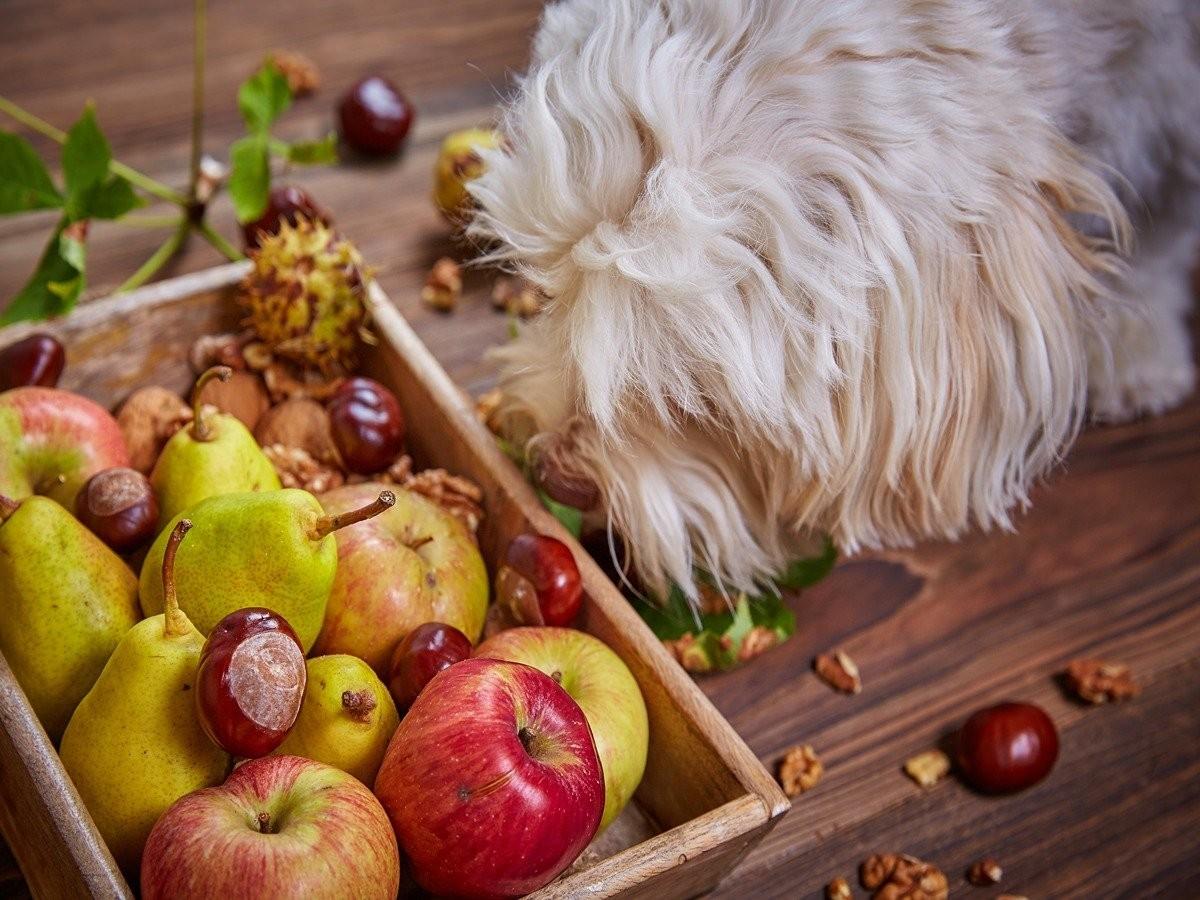Looks like your dog is giving you the classic stare saying, “Are you going to share some or what?” Given the fact that pecans are loaded with vitamins and minerals important for healthy skin, eyes, teeth, bones, muscles, and nerves, you may feel like feeding some to your dog. (1) But pause (did feel like typing ‘paws’ here). Pecans may not give your dog the same benefits as they do to you. They can actually be harmful to your dog and can cause multiple problems.
Here are some major issues with feeding pecans to dogs – (2)
Toxins
Pecans contain a toxin known as ‘juglone’. It is sometimes used as a herbicide, as a dye for cloth and inks, and as a coloring agent for foods and cosmetics. This toxin can be very harmful to your dog. It can cause gastrointestinal (GI) problems like upset stomach, vomiting, and diarrhea.
It may be unlikely that you have a horse as well but if you’re that rich, don’t feed pecans to them as well. They can cause the same problems to horses.
Mold
You must have seen a translucent white layer on some food items. That’s mold. And pecans are quite susceptible to it. Mold contains tremorgenic mycotoxins, which if consumed by the dog can cause tremors, seizures, and can even damage a dog’s neurological system. Pecans can even contain other types of poisonous chemicals such as aflatoxin.
Choking hazard
Pecans are not the easiest to digest for dogs. If a dog ends up eating a whole pecan without chewing it, the size and texture can cause some serious problems like choking or intestinal blockage which can be fatal. This risk is higher in smaller dogs. Blockages will require surgery.
Fat content
Pecans are high in protein, fiber, vitamins, and antioxidants. But another thing they are high in is the fat content. The digestive system of dogs is not great at digesting fats. In the short term, it can cause problems like diarrhea and vomiting. When exposed to high-fat foods for a long time, a dog can develop serious conditions like pancreatitis (inflammation of the pancreas), or gastroenteritis (inflammation of the intestines).
How Many Pecans Can a Dog Eat?
If your dog steals one from your hand, don’t force your dog to open their mouth and throw it. Pecans are bad for dogs but not toxic. However, if you come back from an office call (which could’ve been a mail) and find the bowl empty, you may want to keep checking for signs of illness in your dog. Here are some common signs that you should look for – (2)
Vomiting
Diarrhea
Excessive urination
In case your dog has eaten only a couple of pecans but if there’s any sign of mold on the remaining ones, you must take your dog immediately to a vet.
Can Dogs Have Pecan Pie?
Firstly, pecans are not that great for dogs. On top of that, you’re asking if you can feed pecans with a load of sugar, corn syrup and butter to your dog. We think we’ve already answered your question.
What Nuts are Toxic for Dogs?
The relationship between nuts and dogs is like yours with your ex. An occasional catch-up won’t harm but if it becomes too frequent, it can be toxic. There are no significant benefits of eating nuts for dogs but since dogs are curious creatures who at times fall for things that are bad for them, you can give a couple of them as an occasional treat to your dog (you see the similarity here?)
Peanuts, cashews, and almonds are usually considered less harmful to dogs and can be given in a plain, unsalted form as a treat. Keep your pet completely away from macadamia nuts as they are truly toxic for dogs. Other nuts such as black walnuts, raw cashews, pistachios, hickory nuts, Brazil nuts etc. are not toxic but pose a threat to your dog’s health. (3)
The major risk involved in all of them is the high-calorie and fat content that can cause obesity in pets. The high fiber content can also be difficult to digest for them. The coatings on some can cause gastric irritation, especially if they are heavily coated in salt. And all of them pose a choking threat. (3)
More About Spot Pet Insurance
Having a dog is great, but there will be times when your canine ends up feasting on things they are not supposed to. You may also unknowingly feed them foods that can cause digestive upset and other problems for them. Some may be minor, but others might be severe and may even surgery. At such a time, worrying about your pet would be more important than worrying about all the medical bills. This is where pet health insurance helps. You can get reimbursed up to 90% of all eligible veterinary expenses.
Dog Insurance can help provide financial assistance for eligible veterinary care in case of unexpected accidents, illnesses, or injuries. Our plans can help pet parents manage the eligible costs of covered veterinary care and help ensure that their pets can receive the best treatment possible. Here are some ways that Spot pet insurance plans can help:
Covers Unexpected Veterinary Costs: Spot pet insurance plans cover the eligible costs of unexpected veterinary treatments, such as emergency surgeries, X-rays, and prescription medications for covered conditions.
Customizable Plans: Choose your annual limit, reimbursement rate, and deductible from a range of options, and create the plan that will fit the needs of your pet and your budget.
Peace of Mind: With Spot pet insurance plans, pet parents can know that they can provide the best care for their pet with less worry about the cost.
To learn more about Spot Plans or to get a free quote, click here.

I've had the privilege of immersing myself in the realm of pet safety. As the owner of an energetic mini golden doodle, I know just how stressful being a pet owner can be. I am dedicated to ensuring our beloved pets enjoy a life brimming with good health.
Colorito, Rita. "Health Benefits of Pecans," WebMD, 29 Jan. 2024, https://www.webmd.com/diet/health-benefits-pecans.
Lesser, J. "Can Dogs Eat Pecans?" The Spruce Pets, 23 Oct. 2025, https://www.thesprucepets.com/can-dogs-eat-pecans-4844512.
Turner, Beth. "Safe and Unsafe Nuts and Seeds For Dogs & Cats." Preventive Vet, 09 Sep. 2025, https://www.preventivevet.com/pets/safe-and-unsafe-nuts-and-seeds-for-pets.
The information presented in this article is for educational and informational purposes only and does not constitute or substitute for the advice of your veterinarian.












